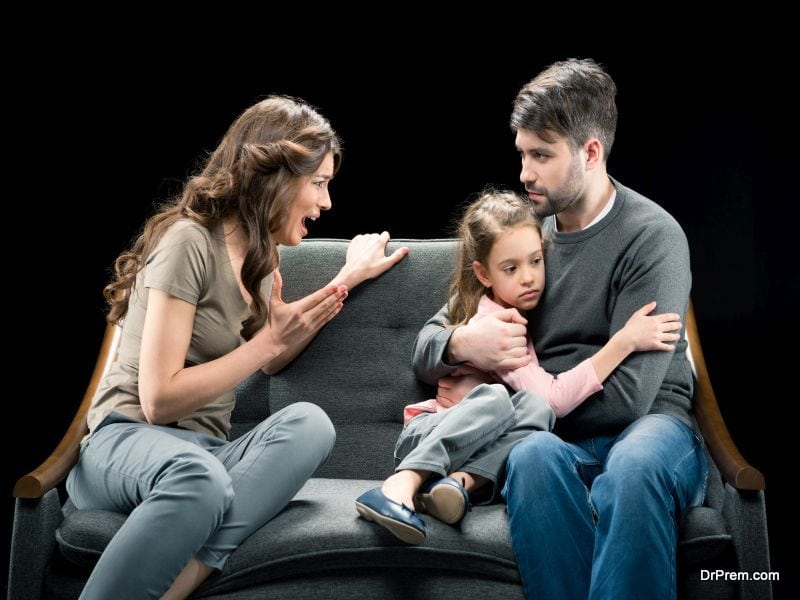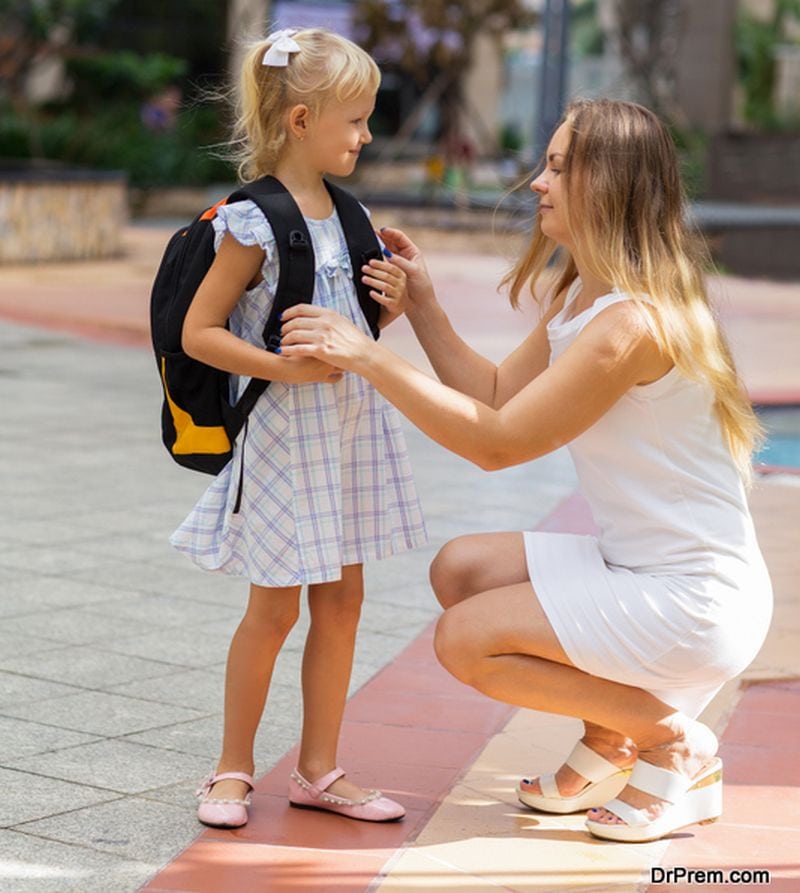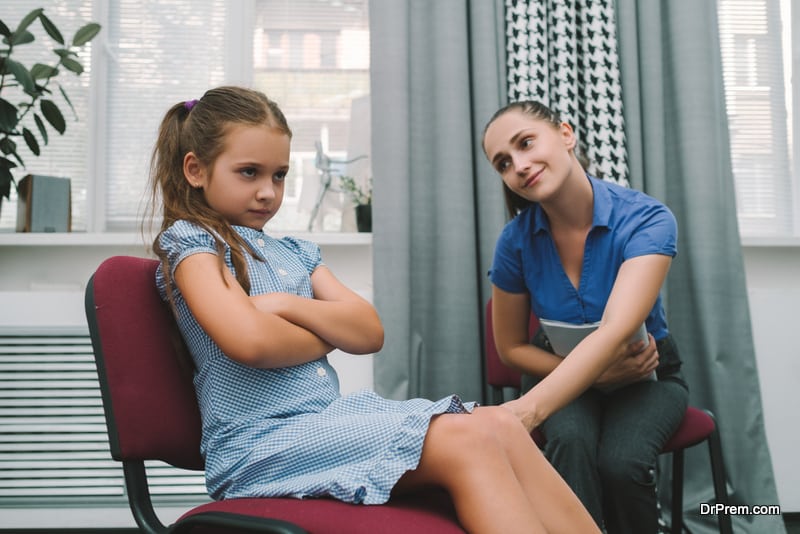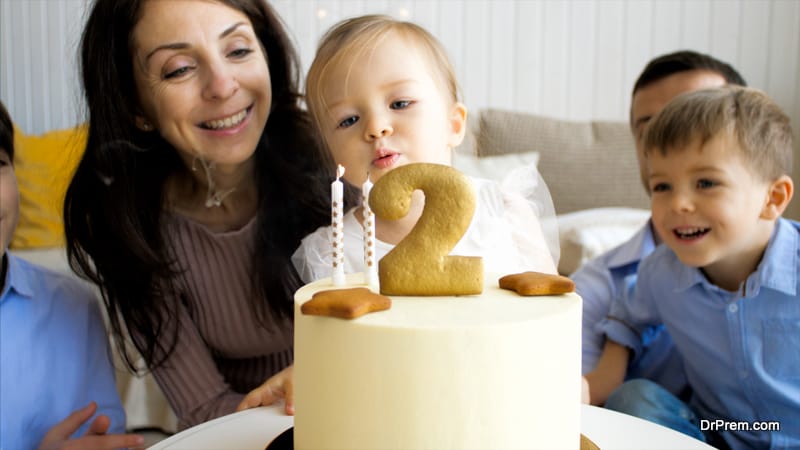Mindful parenting is conscious parenting. It is all about being aware or conscious of what is happening at the present while dealing with kids. Ironically, as a parent, we are always somewhere else except being in the present.
The constant worry of finishing the endless to-do list leaves us stressed and any simple provocation from our kids triggers our stress response in the most unlikely manner. Frequent outbursts of this kind have a serious impact on the child’s psychology and that do not leave parents satisfied as well.
Mindful parenting implies not to lose cool even in the most stressful moment. Unknowingly, we model ourselves that this is the way to handle stress which would be picked up by kids when they grow up. We should train ourselves to take a pause and slow down to be in that moment. It would also teach the kids to pause and respond instead of react.
Driving mindfulness into parenting demands a continuous practice:
 Nothing can define perfect parenting since no human being is perfect. But we have choices and can make better decisions. There is always a room to build ourselves from what we are. Our minds will always remain fixated to innumerable things and we will have to continuously drive it to be in the present moment.
Nothing can define perfect parenting since no human being is perfect. But we have choices and can make better decisions. There is always a room to build ourselves from what we are. Our minds will always remain fixated to innumerable things and we will have to continuously drive it to be in the present moment.
There will be mistakes and lapses. You may get angry or upset and allow negative emotions to seep into your mind but the moment you become conscious of this and start focusing on the present, you develop mindfulness.
This would not only improve your parenting skills but also help in nurturing a better parent-child bonding. Mindful parenting may involve two phases. The first one is to be a mindful parent by making intentional choices for your kids and family. The second one is to teach mindfulness to kids.
8 Simple tips for mindful parenting:
1. Make space for daily mindfulness practice:
 Take out 5-30 minutes from your daily schedule. Sit comfortably in the same place every day at a fixed time and bring awareness to your breathing pattern and physical experiences. If your mind wanders, don’t fret. Bring back the concentration and again follow the breathing. This will teach you how to be at the present moment, which would be immensely valuable for your kids. You will be able to give your complete attention to your kids.
Take out 5-30 minutes from your daily schedule. Sit comfortably in the same place every day at a fixed time and bring awareness to your breathing pattern and physical experiences. If your mind wanders, don’t fret. Bring back the concentration and again follow the breathing. This will teach you how to be at the present moment, which would be immensely valuable for your kids. You will be able to give your complete attention to your kids.
2. Learn to manage your stress mindfully:
 In handling our daily stress, we hardly manage to give our full presence to the kids. While you improve your mind-body connection through mindfulness, you will be able to detect the point of imbalance caused by stress. Instead of getting into reactive mode, you can switch to the responsive mode by using the STOP acronym.
In handling our daily stress, we hardly manage to give our full presence to the kids. While you improve your mind-body connection through mindfulness, you will be able to detect the point of imbalance caused by stress. Instead of getting into reactive mode, you can switch to the responsive mode by using the STOP acronym.
- S- Stop – Pause whenever you detect stress or imbalance. This is the most important part to look for that calmness in the heat of the moment which will help you to respond instead of react.
- T- Take a breath – Breathe consciously for a few minutes. Allow your mind to settle which will help in calming down the trigger centers of your brain.
- O-Observe- Observe how your breath brings back the balance to your system. Also, observe things happening around you in full consciousness.
- P- Proceed- Proceed to take purposeful actions or decisions in a calmer state of mind.
3. Never set high standards of parenting for you:
 Mindful parenting does not imply setting very high standards. It teaches you to embrace the concept of being a ‘good enough’ parent with the best of your intentions and imperfections and limitations. If we always strive to be ‘zero-defect’ parents, our children too will fail to get the feel of what it really means to be a human. Moments of failure will teach them to be kind, honest, forgiving, compassionate and humorous too.
Mindful parenting does not imply setting very high standards. It teaches you to embrace the concept of being a ‘good enough’ parent with the best of your intentions and imperfections and limitations. If we always strive to be ‘zero-defect’ parents, our children too will fail to get the feel of what it really means to be a human. Moments of failure will teach them to be kind, honest, forgiving, compassionate and humorous too.
4. Listen to your child’s views first:
Your kid will behave like a kid. Being a mindful parent, you need to keep this in mind. Kids are still at the learning stage to regulate their emotions and priorities. Aren’t we as adults learning this too? The problem arises when we adults start behaving like kids.
Listen to their views with full attention so that they feel that their needs are being given importance. After this, you would be in a much better situation to settle the things.
5. Show warm gestures:

Tantrums from toddlers are common because they are the biggest attention seekers. Yelling, crying and getting hysterical are the routes they take to get your attention or fulfill their needs. But when you feel your efforts to calm down are not working and your frustration is shooting up, give your kid a warm hug or kiss in a loving manner. That would be the best way for both of you to calm down.
6. Maintain a good communication channel with the kid:
 This is the key to mindful parenting. Not every kid communicates by themselves. But raising conscious children implies that you encourage communication. For example, if your kid draws on your newly painted wall, ask him/her the reason. Explain why this is not acceptable in an understandable manner for his/her age.
This is the key to mindful parenting. Not every kid communicates by themselves. But raising conscious children implies that you encourage communication. For example, if your kid draws on your newly painted wall, ask him/her the reason. Explain why this is not acceptable in an understandable manner for his/her age.
If they are upset, ask them the reason. They may not open up instantly. Be tactful in your communication and never lose patience if they take time to admit their flaws/lapses. Never fail to communicate that you love them a lot even if you are upset with them. Communication will help all of you understand each other better and respect the views and opinions of all sides.
7. Teach your kids deep breathing:
It is another important step in mindful parenting which we seldom consider. While you are teaching yourself how to handle stress through deep breathing, teach your kid the same. Sit together and practice deep breathing. If you are inclined to raising conscious children, this would be of great help. Your kids will enjoy too. Teach them the purpose and application. Very young kids may not have the patience to sit for long but watching you they will pick up the practice.
8. Admit your mistakes:
 It is not that always kids are at fault. It would be utterly wrong to assume that we as parents are always right. Our stress and frustration level often rises when we do not find what to do. We may often make a parenting choice that we do not intend to do and burst out at kids. It is important to point out these mistakes and say sorry to them. Being a mindful parent, you would teach them in how to learn from mistakes. This will also help them to remain cool in stressed moments and avoid committing mistakes.
It is not that always kids are at fault. It would be utterly wrong to assume that we as parents are always right. Our stress and frustration level often rises when we do not find what to do. We may often make a parenting choice that we do not intend to do and burst out at kids. It is important to point out these mistakes and say sorry to them. Being a mindful parent, you would teach them in how to learn from mistakes. This will also help them to remain cool in stressed moments and avoid committing mistakes.




